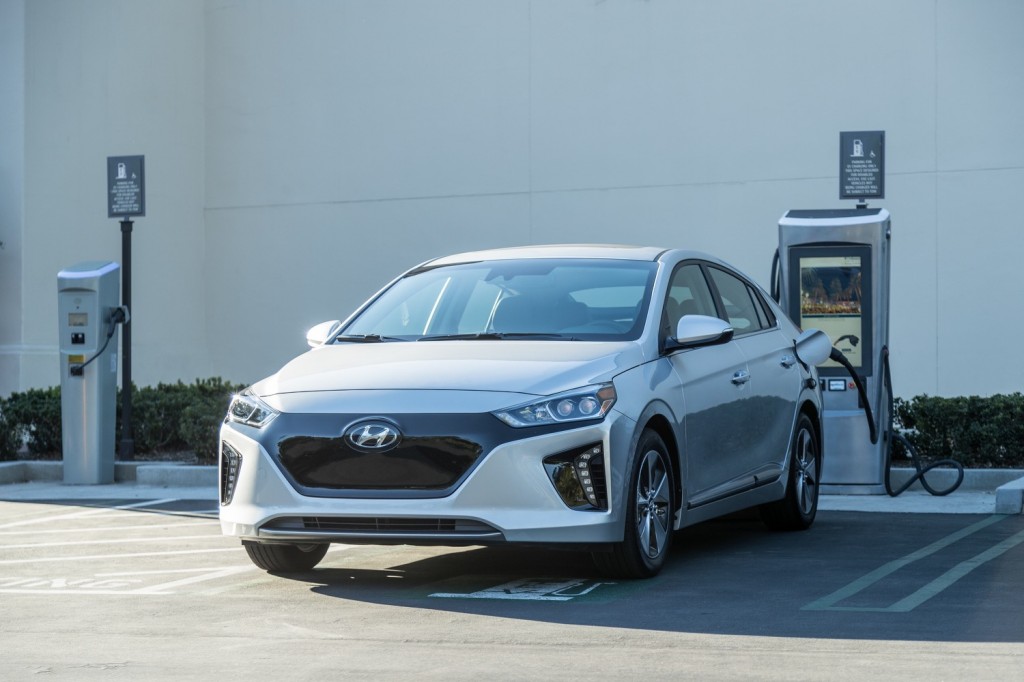“Electric cars are disasters. They are evil."
Not something you'd hear every day, certainly not from a powerful executive in the auto industry.
Yet those are the words of Ha Bu-young, head of the Hyundai motor union, both the largest and the most powerful union in South Korea.
DON'T MISS: UAW wakes up to job threat posed by electric cars, as German unions have already (Oct 2017)
Ha made the comment in an interview with the Reuters news service last week, published on Monday.
His concern is jobs, specifically the well-paid auto industry jobs that have lifted auto workers in the country to higher salaries and more generous benefits than those in most other industries.
General Motors blamed high labor costs and declining sales for its decision to close an assembly plant in the country, one of those it acquired 15 years ago when it bought the bankrupt Daewoo operation.

Hyundai Ulsan assembly plant
Ha estimated that electric cars could destroy 70 percent of the jobs at Hyundai under a worst-case scenario, though that figure is far higher than estimates from union bosses in other countries.
In late 2016, Michael Brecht, chief of the Daimler works council, said the number of workers required to build internal-combustion engines was "roughly tenfold" the number required for electric motors of similar output.
The UAW in the U.S. weighed in last October, after new Ford CEO Jim Hackett called for a 30-percent reduction in the "hours per unit" to assemble electric cars.
“We’ve been doing our due diligence to find out how much it (electrification) means to us,” said UAW Vice President Jimmy Settles, head of the union’s Ford department
He said the union and the automaker had agreed to work together to understand the answer to that question.
READ THIS: Electric cars necessary to protect Mercedes jobs, says labor leader (Sep 2016)
Another challenge for auto unions is the value represented by powertrain components versus the rest of the vehicle.
Today and likely well into the future, the single most expensive component of a battery-electric vehicle is its battery pack, which may be $6,000 to $9,000 for a 60-kilowatt-hour pack even once cells reach $100 per kilowatt-hour.
But the electrode film for those cells is made not in the automotive industry but by giant battery companies like Panasonic, LG Chem, and AESC.
2017 Hyundai Ioniq Electric
So even if cells and battery packs are assembled locally, as they are at the huge Nissan plant in Smyrna, Tennessee, the high-value electrode film comes in from somewhere else where auto-industry unions have no representation.
That is, parenthetically, why one-third or more of a 2018 Nissan Leaf is still deemed content originating outside North America—because the electrode film is shipping in from Japan.
CHECK OUT: Ford to cut engine funding by one third, invest in electrics, autonomous vehicles
Automation and outsourcing have steadily eroded the number of hours and workers required for a new car, even as cars grow in complexity, though the remaining employees work in far less grueling conditions than did their forebears.
But Ha may not be too far off-base in worrying that auto-union membership will shrink the ranks of the union. He just resorted to stronger language than other union bosses have to date.













